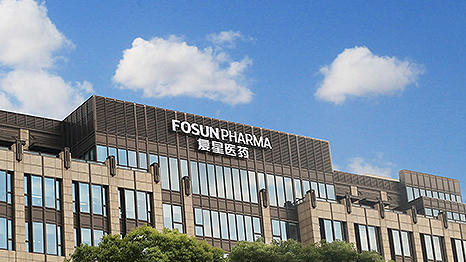
On February 2, 2021, Wanbang Biopharma's Empagliflozin Tablets, the new generation oral sodium-glucose co-transporter-2 (SGLT2) inhibitor, was approved by NMPA (Approval No.: GYZZ H20213115) for glucose control in patients with type 2 diabetes alone or in combination with metformin or metformin and sulfonylureas.
The empagliflozin manufactured by Wanbang Biopharma is registered as a Class 4 chemical drug and deemed to have passed consistency evaluation. The marketing of empagliflozin will provide a new option of high-quality, efficacious, and affordable high-end hypoglycemic drugs for patients with diabetes in China. As an enterprise deeply engaged in the field of diabetes treatment, Wanbang Biopharma already has insulin, sulfonylureas, insulin sensitizers, and products for preventing and treating diabetic complications. The marketing of empagliflozin will help further enrich and improve the product line of Wanbang Biopharma in the field of diabetes treatment, improve Wanbang Biopharma's core competitiveness, and provide better medication experience and services for diabetic patients in China.
People with diabetes have twice the risk of dying from cardiovascular disease than people without diabetes [1]. Globally, approximately one out of two patients with diabetes die from cardiovascular disease. Cardiovascular complications have become the greatest threat to patients with type 2 diabetes. Up to 80% of diabetic patients have a high risk of cardiovascular and cerebrovascular diseases, that is, 4 out of every 5 patients with type 2 diabetes have a high risk of cardiovascular and cerebrovascular diseases.
Empagliflozin is a highly selective SGLT2 inhibitor that has a unique hypoglycemic pathway independent of insulin, i.e. direct urinary excretion of glucose by reducing the reabsorption of glucose in the kidneys. In addition to a clear hypoglycemic effect, it also brings additional benefits of weight loss, blood pressure reduction, and uric acid reduction. Due to its role in reducing the risk of cardiovascular events and slowing the progression of kidney disease in patients with diabetes, it is the first type 2 diabetes drug to reduce the risk of cardiovascular death as demonstrated in a large cardiovascular outcome study (EMPA-REG OUTCOME®) in the world.
EMPA-REG OUTCOME® is a long-term, multicenter, randomized, double-blind, placebo-controlled clinical trial. The study included 7,020 patients with type 2 diabetes from 42 countries and regions worldwide and was observed for a mean of 3.1 years to evaluate the effect of empagliflozin (10 mg or 25 mg QD) or placebo when added to the standard of care. The results showed that treatment with the SGLT2 inhibitor empagliflozin significantly reduced the incidence of the primary composite endpoint of cardiovascular events and all-cause mortality in patients with type 2 diabetes and cardiovascular disease, compared with placebo. In patients with type 2 diabetes at high cardiovascular risk, empagliflozin reduced the risk of all-cause mortality by 32%, cardiovascular death by 38%, and hospitalization due to heart failure by 35%.
Kidney disease is more common in diabetic patients and may lead to kidney failure requiring dialysis or a kidney transplant [2]. Results of the EMPA-REG OUTCOME® study also showed a favorable renal safety profile of empagliflozin. Empagliflozin reduced the risk of new or worsening nephropathy by 39%, progression to macroalbuminuria by 38%, doubling of creatinine by 44%, and initiation of renal replacement therapy by 55%. Empagliflozin has shown a good overall safety profile while lowering glucose and improving cardiovascular outcomes; it is expected to benefit a broad range of patients with type 2 diabetes at high cardiovascular risk, bringing more clinical benefits.
With the marketing of empagliflozin, Wanbang Biopharma will continue to enhance product power with the optimal product portfolio in the field of diabetes, provide more and better treatment solutions, commit to a healthier life and help patients manage diabetes.
About Wanbang Biopharma
Jiangsu Wanbang Biopharmaceuticals Co., Ltd. (Wanbang Biopharma) is a core member enterprise of Shanghai Fosun Pharmaceutical (Group) Co., Ltd. (Fosun Pharma, stock code: 600196-SH, 02196-HK). Currently, Wanbang Biopharma holds and controls 20 subsidiaries and has established 10 manufacturing sites across China, covering a total area of nearly 1,000 mu.
Wanbang Biopharma focuses on the R&D, production and sales of drugs in the therapeutic fields of hyperglycemia, hypertension, hyperlipidemia, hyperuricemia, anti-tumor, etc. The Company has established a first-class R&D and manufacturing site in China for genetic engineering drugs for prokaryotic and eukaryotic cells. The R&D of recombinant human insulin and its analogs, recombinant human erythropoietin and other recombinant protein drugs take the leading position in China. Through equity participation, Wanbang Biopharma has established an R&D laboratory of small molecule innovator drugs in San Francisco, USA, which is also in the leading position in the field of small molecule and high-difficulty generic drugs development.
The Company invests about 10% of the sales revenues for the R&D of new products annually; it has a professional R&D team with over 300 personnel, applies for more than forty national patents and launches several new products into the market every year. At present, the Company has over ten products with annual sales revenue of more than RMB 100 million.
References:
1.Emerging Risk Factors Collaboration. Association of Cardiometabolic Multimorbidity With Mortality. JAMA. 2015; 314(1): 52-60.
2.International Diabetes Federation. The Kidney. p.15.
3.Thomas MC. Changing epidemiology of type 2 diabetes mellitus and associated chronic kidney disease. National Review of Nephrology. 2016; 12(2): 73-81.
4.Gansevoort RT, et al. Chronic kidney disease and cardiovascular risk: epidemiology, mechanisms, and prevention. The Lancet. 2013; 382: 339-52.
5. Bays H. From victim to ally: the kidney as an emerging target for the treatment of diabetes mellitus. Curr Med Res Opin. 2009; 25(3): 671-81.






